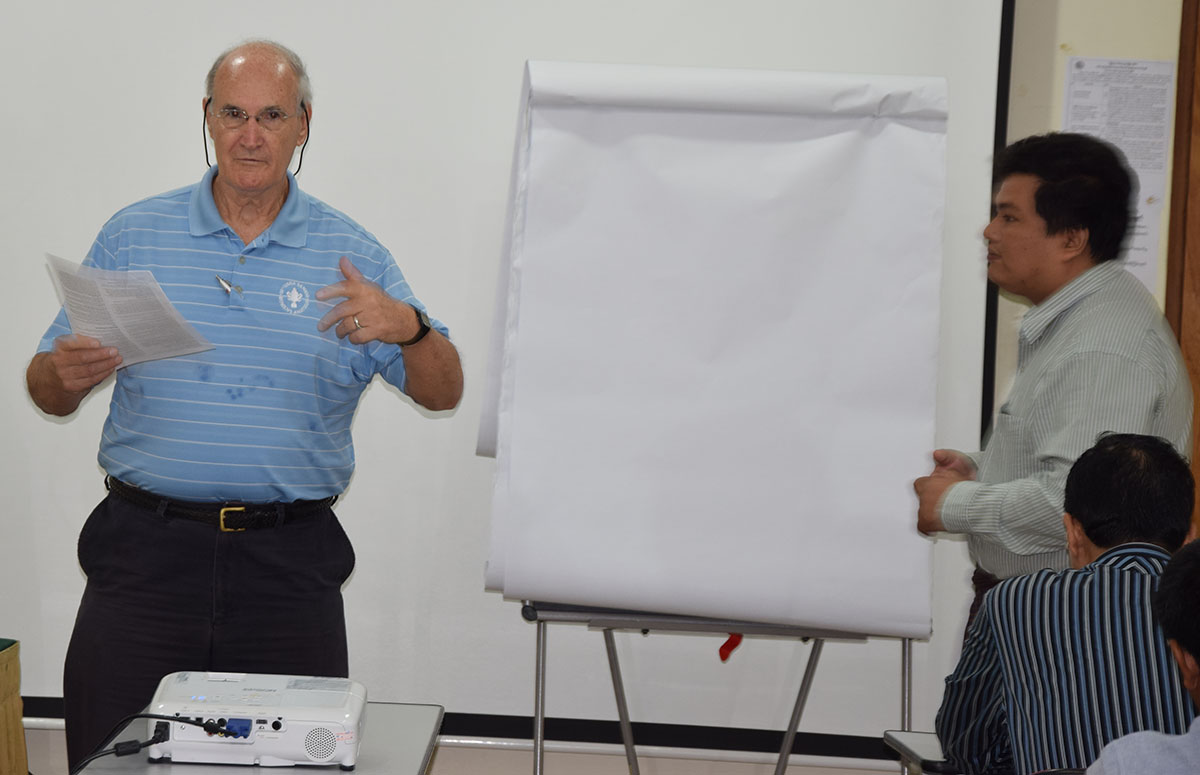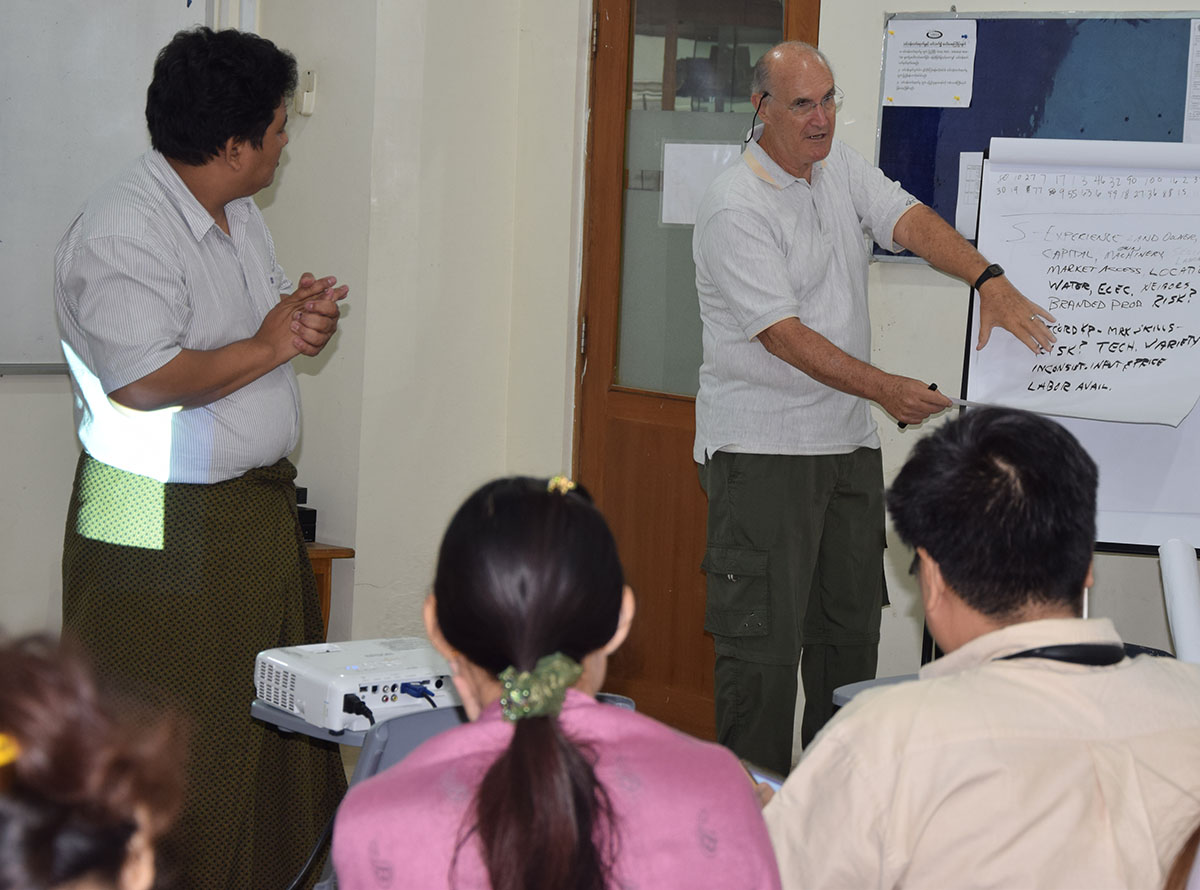
Volunteer Post
The Entrepreneurial Spirit of Myanmar Farmers
F2F volunteer, Richard Edwards
I had met the country director of Winrock’s office in Myanmar, Dr. Ai Thanda Kyaw, about two years ago while on an assignment in Nepal. While in Nepal for a regional meeting, she expressed a desire to visit the birth place of Buddha. The site was near the town, where my wife, Mary, and I were on an assignment, and we were asked if we wanted to go with her to the site. Naturally we said yes. During our time together we discussed possibilities for one of us coming to Myanmar on a Farmer-to-Farmer assignment. About two years later, I finally made it.
Upon arrival to Yangon, I was struck by the cleanliness of the airport and how quickly one moves through the customs and immigration process which is a sharp contrast to many other developing countries that I’ve traveled to.
The assignment was to teach basic record keeping and financial management techniques to “farmers” in two regions of the country, Mandalay and Yangon. I put the quote marks around farmers as few participants are what we in the USA would call traditional “row crop” farmers. Attendees were citrus growers, mushroom growers, mango producers and processors, and vegetable producers.
as few participants are what we in the USA would call traditional “row crop” farmers. Attendees were citrus growers, mushroom growers, mango producers and processors, and vegetable producers.
In the capital city, I was expecting the urban and rural environment to be similar to what I’ve seen in other urban environments in the developing world, but I was entirely wrong. Both Yangon and Mandalay are busy metropolitan areas with multiple construction sites and heavy traffic.
The farms I visited were often down miles of bad roads, but they were well kept and from the production side, well managed.
After overnighting in Yangon, Dr. Thet Khaing (TK), Technical Officer with Winrock’s Myanmar office, and I, flew to the assignment site in Mandalay.
One of the most interesting items I had was a frozen slice of mango served on a Popsicle stick. One of the participants invited us to her farm after one of the training sessions, and besides growing mangos, she had a small processing plant where she peels, removes the seed, slices them in half, inserts the stick, and then flash-freezes the mango. They are then exported to Korea. They are delicious.
I was given several business cards, and the names listed became a point of discussion with TK. It seems the people of Myanmar have no last names (or surname in the USA). People have between two and four names, but one cannot discern who their parents are or any other family member from those names. We jokingly wondered what they would write down as the surname on any form needed to enter another country.
I want to go back to the assignment, and reflect on the entrepreneurial spirit exhibited by the people who came to the training. All seemed to be quite successful in their businesses even though only one of those attending said they kept any kind of records. It is a cash society with interest rates hovering around 20% if you can find a lending source.
successful in their businesses even though only one of those attending said they kept any kind of records. It is a cash society with interest rates hovering around 20% if you can find a lending source.
I was blessed to receive several samples of products that were being produced by the members of the groups. They ranged from sweets to fancy flip flops. The sweets were consumed prior to leaving and the flip flops, upon arrival in the USA, were taken over by Mary as they were too small for me. Upon completion of the training I made the participants raise their right hands and affirm that they would start keeping good records. I guess the monitoring and evaluation phase of the assignment, which will be conducted in six to twelve months, will see if they have begun to do so.
The country director indicated there might be an opportunity for both Mary and I to return to the country, and we would welcome the opportunity.
